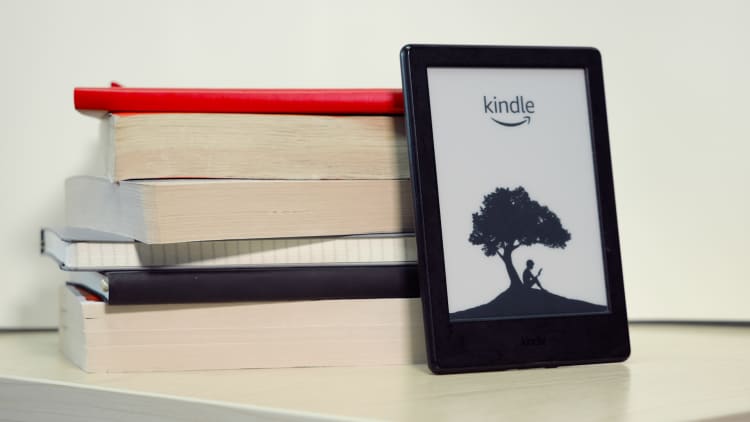An e-book is a text that has been formatted to be read on a computer or handheld device. Many titles available in print can also be read as e-books, including best-selling fiction, classics, and reference works. While it is very comfortable and easy to use an e-book and it can be stored on whatever device you may have, physical books still outsell e-books in the market.
According to statistics, people love to display what they’ve read, bibliophiles love to have a record of what they’ve read and it’s about showing this off to the rest of the world. It’s like an added decoration to their home or office.
A Brief History of E-books
E-books, or electronic books, are a simple, convenient, and thoroughly modern method of accessing literature and text-based information. While you may associate e-books and e-reader devices with everyday life, they have a much longer history than you might think.
The concept of an electronic book was developed when paperback books first appeared on store shelves in 1930. After seeing his first talkie, writer Bob Brown had the idea for an e-reader that would allow readers to read books on a screen just like a movie that includes sound. He dubbed this concept readies, a play on talkies.
This fictitious readies concept would allow readers to read books much faster than they could print books. Brown’s vision would not only convert books to digital files but would also replace everyday words with a large number of portmanteau symbols and use new types of punctuation to simulate action or movement.
When e-Reading devices and e-books were eventually invented, these speed-reading ideas never caught on, but the idea of reading books electronically did.
E Ink Corporation developed technology in 1997 that allowed digital screens to reflect light like ordinary paper without a backlight. The Rocket E-book was the first commercially available e-reader device to employ this technology.
Several other manufacturers eventually used this technology to create new e-reader devices, including the Amazon Kindle, which was released in 2007 and quickly became the world’s most popular e-reader. (Source: CNBC)
But Why Do People Still Prefer Physical Books?
E-books have both advantages and disadvantages when compared to traditional print books. The main advantage of e-books is that they allow the user to store many books in a small amount of space.
This dramatically simplifies traveling with reading material. Many e-reader devices also include a built-in light source, making it much easier to read in the dark.
However, many people still prefer traditional print books. Some people prefer paper books because they have a more tactile feel. Some people are also opposed to e-books because some publishers use Digital Rights Management (DRM) on them.
Others are concerned that when they download and read e-books, their privacy may be jeopardized because information about the books they read may be collected and stored.
I think the e-book bubble has burst somewhat, sales are flattening off, and I think the physical object is very appealing. Publishers are producing incredibly gorgeous books, so the cover designs are often gorgeous, they’re beautiful objects.
Meryl Halls, Managing Director of the Bookseller’s Association UK
(Source: CNBC)
